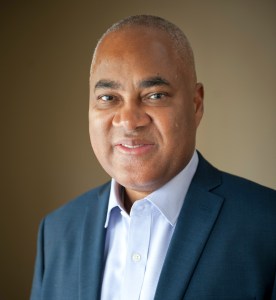With a proposed new leader in Haiti, Rochester residents Pepin Accilien and Ed Hourihan hope to be able to go back to helping the island nation again.
Accilien took heart to learn that the proposed interim president in his birth country, Haiti, is a man personally known to him who he not only respects but has family ties to. Fritz Jean is an economist and former governor of the Bank of the Republic of Haiti. He is the husband of Accilien’s wife’s sister.
Jean was selected as interim president of Haiti in a Jan. 30 vote held by a 52-member council. The council conducted the balloting in Louisiana. In the same session, it also elected Steven Benoit, a former member of the Haitian senate, to be premier.
The council grew out of the Montana Accord, a pact inked by a group made up of Haitian civil and political figures who began meeting last year immediately after President Jovenal Moise was assassinated to draw up a plan for stabilizing Haiti. The accord takes its name from the Montana Hotel, the Port-au-Prince hostelry where the group that formed the council first met. However, it remains unclear whether Haiti’s interim premier, Ariel Henry, who assumed office after Moise’s assassination, will agree to step aside in favor of Benoit and Jean.

Haiti’s army was largely dismantled after a 1995 coup; though somewhat restored, it remains unable to act effectively against gangs. Jimmy “Barbecue” Cherizier’s gang has blocked gasoline shipments, creating fuel shortages throughout Haiti, while Cherizier has demanded that Henry step down. A neurosurgeon and politician, Henry has the backing of the U.S. and other nations, despite suspicions by some that he might have been connected to the hit squad that killed Moise.
To avoid the chaotic scene around Haiti’s capital Port-au-Prince, Jean has stayed away from the capital. Now that Jean has been named president by the Montana Accord council, says Accilien, “I imagine he’ll have to go to Port-au-Prince.”
Born in Haiti, Accilien left the country as a teenager with the intention of returning. Instability in Haiti kept him in the United States. He is now vice president of Savin Engineers P.C. and oversees the firm’s Rochester office. Among projects he oversees is the Rochester City School District’s Schools Modernization Program.
“I hope and pray with President Jean’s leadership Ed and I will be able to go back to Haiti again and provide the much needed help the island needs during these difficult times,” Accilien wrote in an email informing me of Jean’s election.
Hourihan is the managing member of Bond, Schoeneck & King PLLC’s Rochester office. He also is a longtime board member of the Haitian Health Foundation, a nonprofit, nongovernmental organization in Connecticut that runs a network of clinics providing care to some 250,000 Haitians including those who otherwise might never see a doctor or dentist.
Until three years ago, when political unrest and then COVID-19 made travel to Haiti too dangerous to contemplate, Hourihan for a decade had made annual trips to Haiti work as a volunteer in HHH clinics.
“Sitting here in Rochester, I am excited for political stability and for our continued work the poorest of the poor,” Hourihan says, pronouncing himself and HHH colleagues “ecstatic” at the promise of a return to political stability in Haiti.
Accilien’s optimism is more muted. Citing continuing and largely unchecked gang kidnappings, extortion and violence plaguing the region of Port-au-Prince, Accilien believes the country will not achieve political stability on its own. Substantial U.S. help will be needed for Haiti to achieve any measure of stability, he says.
Still recovering from a 2010 earthquake that killed 100,000 and left countless others homeless, Haiti suffered a quake again in 2018. Last July, the country was thrown into complete political chaos with the assassination of Moise by a squad of Colombian commandos. An earthquake struck one month later.
A day after the 52-member council’s election of Benoit and Jean, the United Nations Human Rights Council convened a meeting held partly online and partly in-person session in Geneva, Switzerland, at which members urged Haiti to reform its judicial and penal systems.
The UN council promised to make specific recommendations at a future date. In a mid-January report on Haiti, the Human Rights Council noted “a pattern of human rights violations and abuses followed by near lack of accountability (as well as) violations to the rights of peaceful assembly and freedom of expression.”
After Moise’s assassination, the Biden administration laid out help it had provided to Haiti in the past and help it planned to provide in the future in areas including election support, law-enforcement support and humanitarian aid. Whether U.S. aid can help stabilize the country to the extent Accilien and Hourihan hope to see remains to be seen.
Will Astor is Rochester Beacon senior writer. The Beacon welcomes comments from readers who adhere to our comment policy including use of their full, real name.